Philip Oliver of Blitz Games
Titan AE developers interviewed
Blitz Games (neé Interactive Studios) carved something of a niche for themselves during the 1990s, pumping out a whole string of games based on established licenses, ranging from Chicken Run to Action Man, and Frogger to Wargames.
We spoke to the company's co-founder Philip Oliver to find out more about his long history in the gaming industry, Blitz Games, and their latest project - "Titan AE".
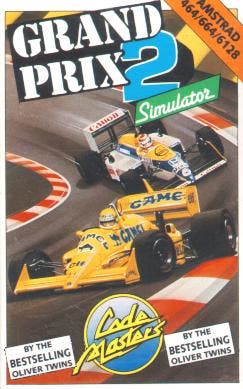
Now In Colour!
The Oliver family first entered the digital age back in the early 1980s - the start of the microcomputer revolution, and the golden age of garage game development.
"Andrew and I first got interested when out older brother Martin bought a ZX81. He was always busy, and had plugged it into the family TV. We read the manual cover to cover to cover, typed in all the listings, and played at altering them to make them more interesting. Quickly we exhausted what it could do though, and wanted something with more power - and colour! So we took on a newspaper round between us to help pay for a Dragon 32, which had just launched at £149."
The year was 1982 - gamers were mostly computer enthusiasts, and games were still simple enough for many of them to be distributed as long print-outs of code, which you then had to type in for yourself before you could play them!
"There were very few games available, so we started writing our own and sending them to publishers. Unfortunately they were all rejected, except for one type-in listing that got published in 'Computer and Video Games' January 1984, and which earned us £50. We decided to use the money to help fund a move onto the BBC Model B costing £200. This was a much easier machine to write for."
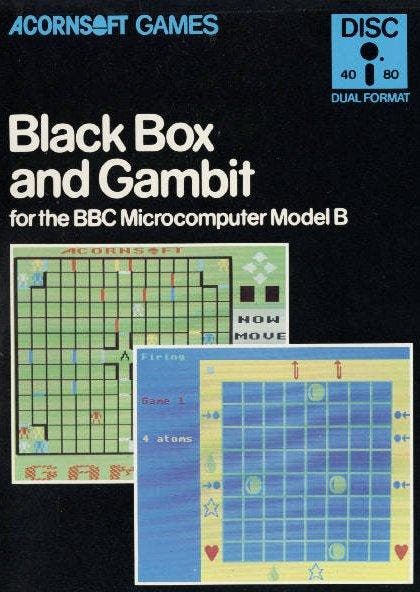
Saturday
Fresh from their first published game, and with a new machine which was the best home computer that money could buy at the time, the Oliver twins found fame and fortune in an unlikely place. "Our first success came when we won a national TV show competition to write a game!"
The competition was run by "The Saturday Show", a TV show presented by Jeremy Beadle, later to find infamy as the host of "You've Been Framed", along with Tommy Boyd and Isla Sinclair. The game caught the eyes of publisher Acornsoft "and this spurred us along to spend every waking moment in writing more games - to be published".
The Oliver twins carried on developing games throughout the 1980s, at a time when budgets were non-existent and development schedules were measured in weeks rather than years. "I'm very proud of the Dizzy games, because everyone compliments us on them and remembers them fondly", Philip told us.
"As for games that make us cringe - I guess that's all of them! We rushed our games out, which in some respects was good, but then when we saw how many people played them and we wished they were better. The one life in Treasure Island Dizzy was us being lazy - sorry!"
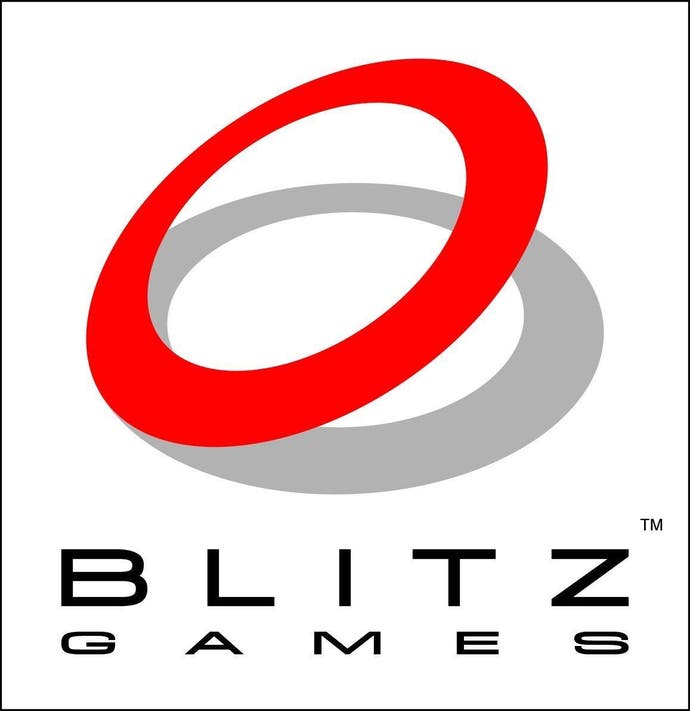
Interactive
By the early 1990s though, the old BBC Micros, Spectrums and Commodores were gone, and the Amiga and PC had arrived. Computers were becoming more powerful and complex, and the teams needed to develop successful games for them were becoming bigger.
"Interactive Studios was set up in 1991 when games became too big for me and Andrew to write them on our own", Philip explained. "Also we had far more ideas than time or ability to develop them all, which just lead to being frustrated. We needed to employ people directly and needed them along side us for good communication. Therefore we got ourselves an office and started looking for enthusiastic programmers and artists."
After several years as Interactive Studios though, the name began to sound rather clichéd. "Back in 1991, the words Interactive and Studios were unique. However, over the years, other companies started using them, making our image weaker and more generic. We have a desire to create a company that the public know and respect as developing high quality, fun games. To achieve this we needed a memorable and unique name."
"We've been attempting to find a new name now for over two years", Philip admitted. "Finally it was decided back in April that Blitz fitted the bill. Why the games - 'cos we wanted a clear domain name www.BlitzGames.com"
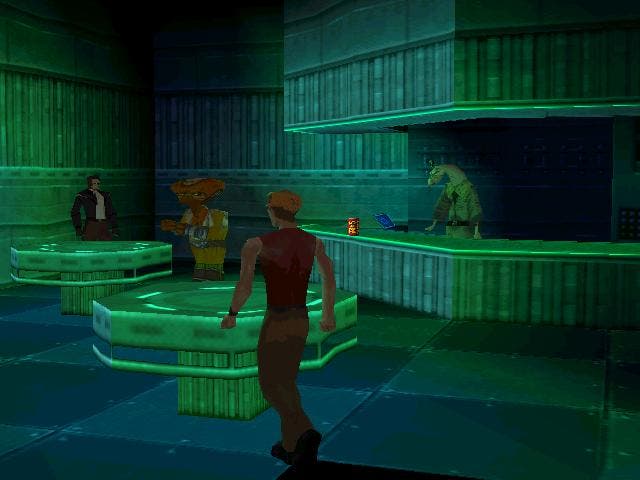
After Earth
One of the first big projects for the new look Blitz Games was to design a game for the PC and Playstation, based on the big budget animated science fiction movie, "Titan AE".
"When Fox purchased the Don Bluth studios they started developing Anastasia, and we were asked to put a concept together for a PlayStation game. They were very impressed, but it was decided that Anastasia was not the right game for the PlayStation, and they produced an activity centre for PCs with somebody else instead. However, they promised that next time they had an opportunity, they would consider us first."
"Then in January 1999 I got a call asking if we would be available to produce an arcade action game for the new film from Don Bluth - Planet Ice. We started work in March 1999, and a few months later the film was renamed Titan A.E."
The game was based very closely on the movie, in which a young man by the name of Cale finds himself racing across the galaxy to save what is left of the human race, after the planet Earth was destroyed by a powerful but xenophobic alien species called the Drej. "The storyline of the film reads very much like the plot for a video game, and therefore it made perfect sense to follow the same story and let the player control Cale and Akima [the movie's love interest], and escape from the Drej to find the Titan."
The game's settings and visuals were also closely based on the movie, and "Fox Animation (the Don Bluth group) sent us monthly updates of the film, as well as concept artwork and 3D models of things likes space ships. It's only been in the last few months that we've needed audio, and they have been very supportive."
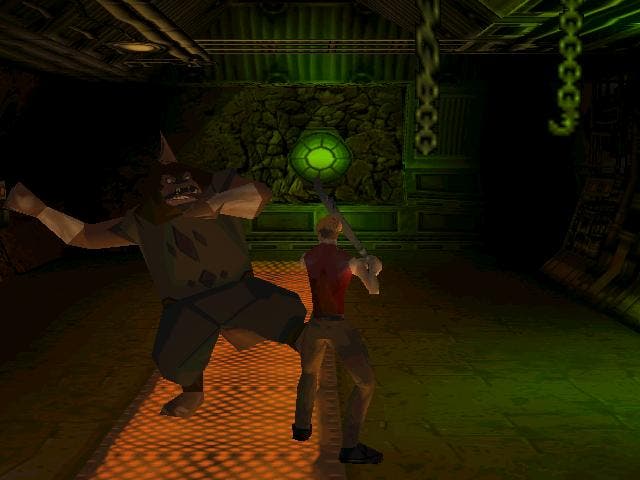
Console
Blitz developed both the PC and Playstation versions of the game in tandem, and "ultimately we felt it was important that both games were similar, and therefore it was sensible to develop all the assets once and exploit them on both the PC and PlayStation, so both games are pretty much the same."
There were naturally some differences between the two versions of the game though, as the original Playstation's hardware is becoming something of an antique these days. "Obviously the PC version varies it's quality according to the PC it is running on", Philip told us. "On a state of the art PC it looks stunning."
There are disadvantages to developing for the PC though, and its biggest strength, the ability to upgrade and replace your computer regularly, is also its biggest drawback for game developers. Philip compared it to "shooting at a moving target", as the hardware is constantly changing, and every player has a slightly different setup.
"At least on a PlayStation you know what the target is, and then you can do everything in your power to make the most of it, and it will always work! With PCs, you always have problems with installation and configuration, which is no fun for developers."
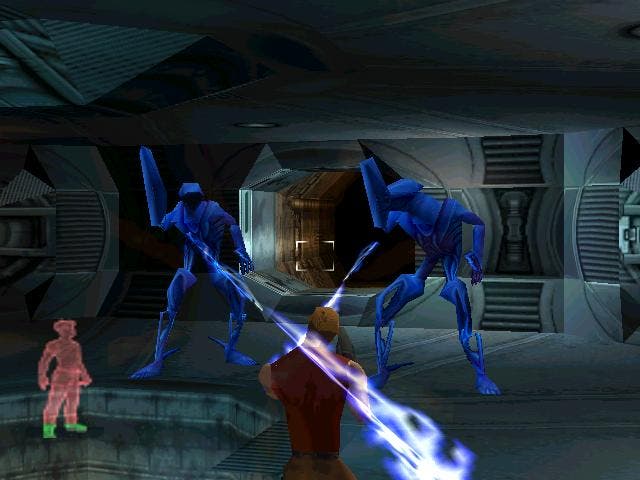
Cancellation
And then news emerged that the Titan AE game had been cancelled by publisher Fox Interactive... As Philip had told us, apparently just hours before Fox broke the bad news to him, "producing video games is a risky business".
"Development costs are high and time scales long. The public naturally buy things that they have heard of, therefore it removes a great deal of risk to produce games based on popular licenses. Unfortunately it means less creative freedom for us producing the game, and ultimately the game's success is based more on the license than the game itself."
Speaking to us later, Philip explained that "Titan did not do well at the US box office, and that effected everyone involved in spin-off's from the movie. It's a great shame that the American public didn't buy into Titan; I believe lack of marketing had a great deal to do with it. It was a good film, and this sets back the whole movie industry in attempting to create SGI animated sci-fi movies, which ultimately could have been great, as well as a good source of material for the games business."
But although the team who were working on the Titan AE game at Blitz are obviously "gutted" by the decision to cancel it, this is far from the end for Blitz. Another of their titles (Frogger 2) has just gone gold this week, and Philip was pragmatic about Titan's cancellation.
"For some developers such a decision would have been disastrous. Unfortunately I've seen it all before, and we make provisions for such events. In our business we must 'expect the unexpected', and have plans to deal with it. We pick ourselves up and get the team straight into something else - we already have exciting new work lined up for them on the next generation platforms."
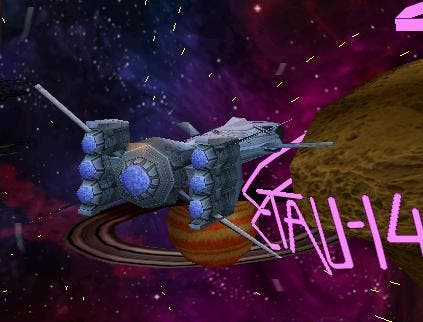
Changes
The gaming industry has changed a lot in the almost two decades that the Oliver twins have been working in it. Back in 1980 games were a cottage industry, with most of the best games and home computers produced right here in Britain.
"Games were for Geeks! That was how we were branded at school. Being able to write them made you a nerd! This was at a time when we cared about what others thought about us. But we had faith in what we were doing and carried on regardless. Now writing games is a cool and respected job. And owning the company that does it is an honour!"
Today computer games are a multi-billion dollar industry, with all the problems that brings. So what does the future hold for the gaming industry? "Over the next few years I see small companies going after the handheld platforms as they are more 'manageable'", Philip told us. "PC games will be fewer and further between, because that market can't support many games."
"Next Generation games will be developed by in-house publishers or a few large independent development houses like Blitz which have the engines, experience and resources to guarantee large scale, state of the art video games developed on schedule and within budget. Due to the high risk of developing these games, fewer will be produced, and less original (high risk) games will be produced."
Put that way, it all sounds rather depressing really...
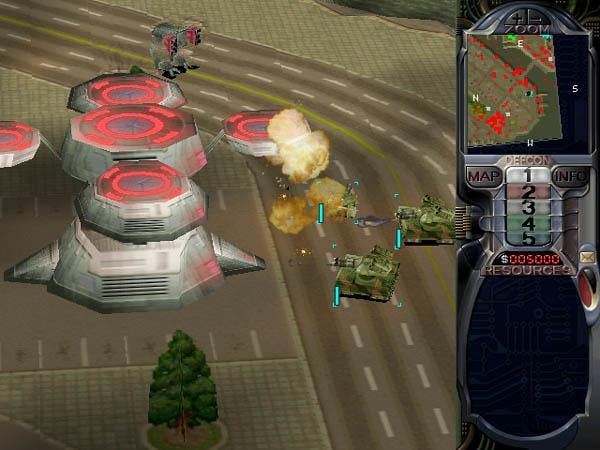
Future
Philip is convinced the future is bright for Blitz Games though. When we asked him what the next few years have in store for the company, he replied "hopefully fame and fortune!"
"No seriously, we intend to continue to grow the business and remain independent, developing great arcade action games for the best mass market technology. Hopefully Blitz will become a household name that people will recognise as the highest quality brand of video games. If we can achieve this reputation, then we will be able to produce original concepts like Glover, which will sell off our own reputation rather than someone else's license."
In the meantime though, the future is very much license based for Blitz - "Frogger 2", "Chicken Run" and "Action Man 2" are all due for release over the next few months. Blitz are also negotiating with MGM to buy the rights to the "Wargames" license, hoping to develop a sequel to their 3D real strategy game based on the classic 1980s film, this time without the interference of the movie moguls.
"But at present we are so overwhelmed with work, it could be a while before we get to produce another WarGames", Philip told us.
In that case, we'd better let you get back to it...
-
Titan AE preview (PSX version)

